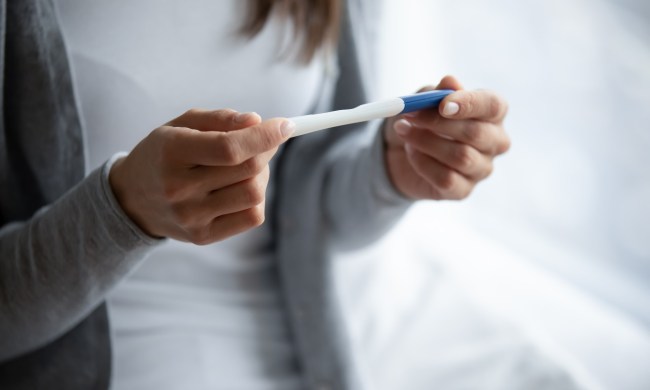During your time of joy and anticipation for your little one’s arrival, you might encounter a few bumps along the way. The next nine months, give or take, are sometimes marked with morning sickness, swollen feet, odd cravings, and… headaches?
Thus, you might wonder what causes headaches during pregnancy and most importantly, how to deal with them. So, we present to you some possible causes, symptoms to watch out for, and of course, some safe remedies.
Are headaches normal during pregnancy?
Many women suffer from headaches during pregnancy, which is not out of the ordinary. Whether you’re experiencing an occasional tension headache or a migraine, this malady is quite common, especially during the first and third trimesters. However, that doesn’t take away from the fact that they are bothersome. Fortunately, for each cause, you’ll find a remedy that’s safe for you and your baby.
What causes headaches during pregnancy?
During the first trimester, the changes that your body goes through contribute to more frequent headaches. With hormone levels fluctuating and your blood volume increasing, your head is bound to hurt.
As your pregnancy progresses, headaches can get worse due to a shift in posture that causes a sore neck and back. Also, other factors contribute to the cause such as:
- Withdrawal from caffeine
- Dehydration
- Stress
- Inconsistent sleep patterns
- Low blood sugar
Overall, the bodily changes and dietary alterations seem to be the biggest contributors to headaches. Regardless of the cause, there are different avenues toward relief—all of which are safe for your baby.
Which medications are safe to use during pregnancy?
Pinpointing the cause is just the first step towards relief. Luckily, there are a few over-the-counter medications that are safe when the smallest required dose is taken and only when absolutely necessary. These include:
- Acetaminophen (Tylenol)
- Diphenhydramine (Benedryl-helps with sinus and sleep issues)
- Guaifenesin (Mucinex-also helps with sinus headaches)
Also, you’ll need to remember not to take the multi-symptom or extra-strength form of these medications since the added substances and consistency could harm the baby. Plus, your provider might have other suggestions for safe remedies as well.

How to treat a headache using natural means
In addition to medicine, your doctor might have some ideas for natural remedies. Some possibilities include:
- Applying an ice pack to the top of your head and the back of your neck
- Applying a warm (not hot) heating pad around the eye and nose area for sinus headaches
- Avoiding migraine triggers such as chocolate and hard cheese
- Taking a relaxing, warm shower
- Stretching your back and neck while doing some deep breathing
Sometimes a combination of these measures can work to alleviate your headache and help you to feel more comfortable.
Additionally, you can take further any of the following measures to relieve or prevent headaches such as:
- Working on your posture especially during the third trimester
- Eating a well balanced diet
- Drinking plenty of water to avoid dehydration
- Get plenty of sleep at night
When taking these steps, you’ll find that headaches occur less frequently and are less severe.

When to contact the doctor
While most headaches during pregnancy result from “normal” causes and can be easily treated, others signal more concerning conditions. In a review published by The Obstetrician and Gynaecologist, Dr. Kirsty Revell states that women who have consistently experienced migraines face an increase risk of pre-eclampsia. This condition is manifested by high blood pressure and a loss of protein in the urine. It can also lead to complications during childbirth.
Another condition that presents itself with headaches is cerebral venous thrombosis. This increase of pressure in the brain stems from a blood clot that forms in the cerebral sinuses. While most situations involving a headache are not either of these conditions, you should consult with your practitioner if you are wondering if your headache during pregnancy is a normal physiological change or something else.
So, are headaches normal during pregnancy? As you can see, the answer is a yes in the vast majority of cases. Fortunately, you and your healthcare provider, as a team, can navigate this issue to figure out some steps toward relief and maybe even some preventive practices. That way, you can treasure this special time of preparing for delivery day, which also brings its own end to the headache situation.



